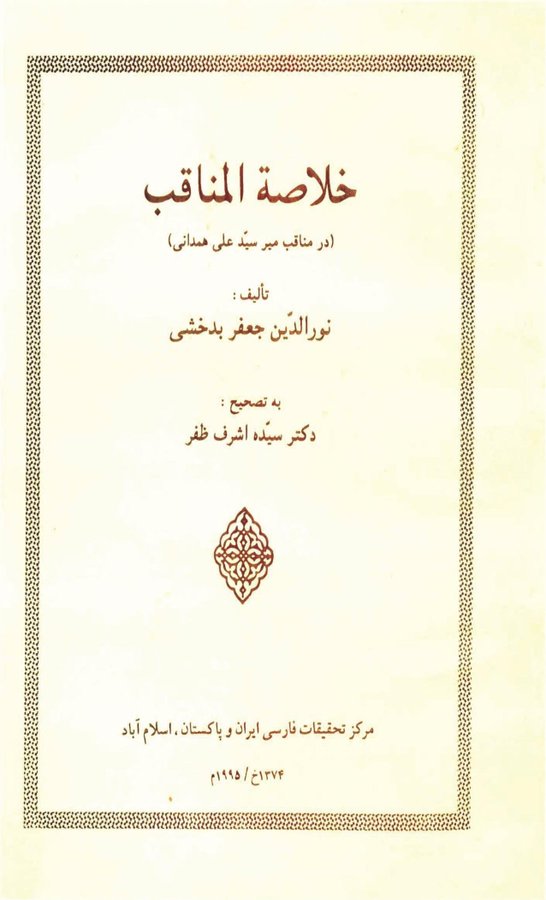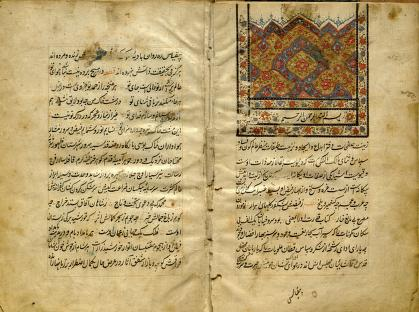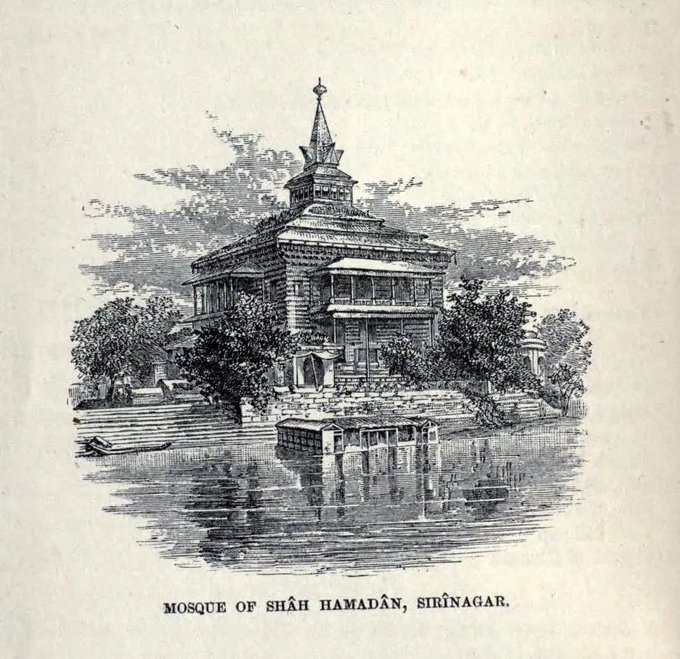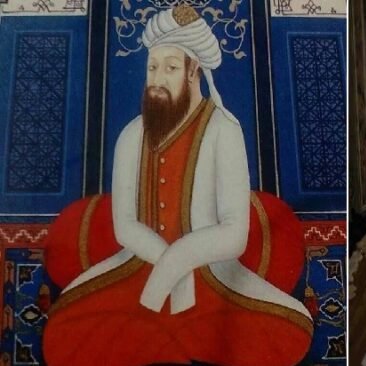Sayyid Ali Hamadani, a Persian Sufi Muslim saint, scholar, and poet, played a pivotal role in the dissemination of Islamic teachings and Sufi mysticism in various regions during the 14th century. His remarkable life and contributions are worth exploring.
Introduction of Ibn Arabi’s Teachings
Sayyid Ali Hamadani is credited with introducing the profound philosophical teachings of Ibn Arabi to the South Asian region. He achieved this by writing comprehensive commentaries on Ibn Arabi’s renowned work, “Fusus al-Hikam,” which served as a conduit for Ibn Arabi’s ideas to reach a broader audience in the region.
Spiritual Mentorship
His formative years were spent under the tutelage of Ala ud-Daula Simnani, a renowned Kubrawiya saint from Semnan, Iran. This spiritual education had a profound influence on his subsequent journey in the world of Islamic spirituality and scholarship.
Widespread Travels and Religious Preaching
Sayyid Ali Hamadani embarked on extensive travels, carrying the message of Islam and Sufism to diverse corners of the world. His journeys included visits to Afghanistan, Uzbekistan, China, Syria, Kashmir, and Turkestan, where he played a pivotal role in promoting Islamic teachings and Sufi practices.
Influential Figures in His Life
The spiritual and intellectual journey of Hamadani was significantly shaped by the wisdom and teachings of luminaries like Imam al-Ghazzali, Shaykh Najm al-Din Kubra (the founder of the Kubrawi order of Tasawwuf), and Ibn Arabi. His deep knowledge and unwavering faith earned the admiration of scholars, including Ibn Taymiyyah.
Navigating Controversies
Hamadani found himself in the midst of heated debates during a time when controversies surrounding the works of Ibn Arabi, “Fusus al-Hikam” and “Futuhat Makkiyyah,” were widespread. His commentaries contributed to the ongoing discourse on Ibn Arabi’s teachings.
Migration to Kashmir and Cultural Contributions
In 1383, during the invasion of Timur in Persia, Sayyid Ali Hamadani and 700 Sayyids left their homeland and migrated to Kashmir. This migration marked a turning point in the spread of Islam in the region. Hamadani also played a significant role in introducing Iranian crafts and industries, notably carpet weaving, to Kashmir. This, in turn, bolstered the textile industry in the region and led to the migration of Kashmiri Muslim groups to Ladakh, bringing their skills in crafts such as minting and writing.
Authorship and Legacy
Apart from his missionary work, Sayyid Ali Hamadani was a prolific author. He penned several books, including “Zakhirat ul-Muluk,” which delved into politics, governance, and social behavior. His legacy endures, with his compositions like “Aurad-I-Fathia” continuing to be recited daily after Fajar prayers (early dawn) and Isha prayers in mosques across the Kashmir valley.
Sayyid Ali Hamadani’s life and contributions have left an indelible mark on the propagation of Islamic spirituality and Sufism in the regions he traversed. His teachings and writings continue to shape Sufi traditions in South Asia and beyond.









